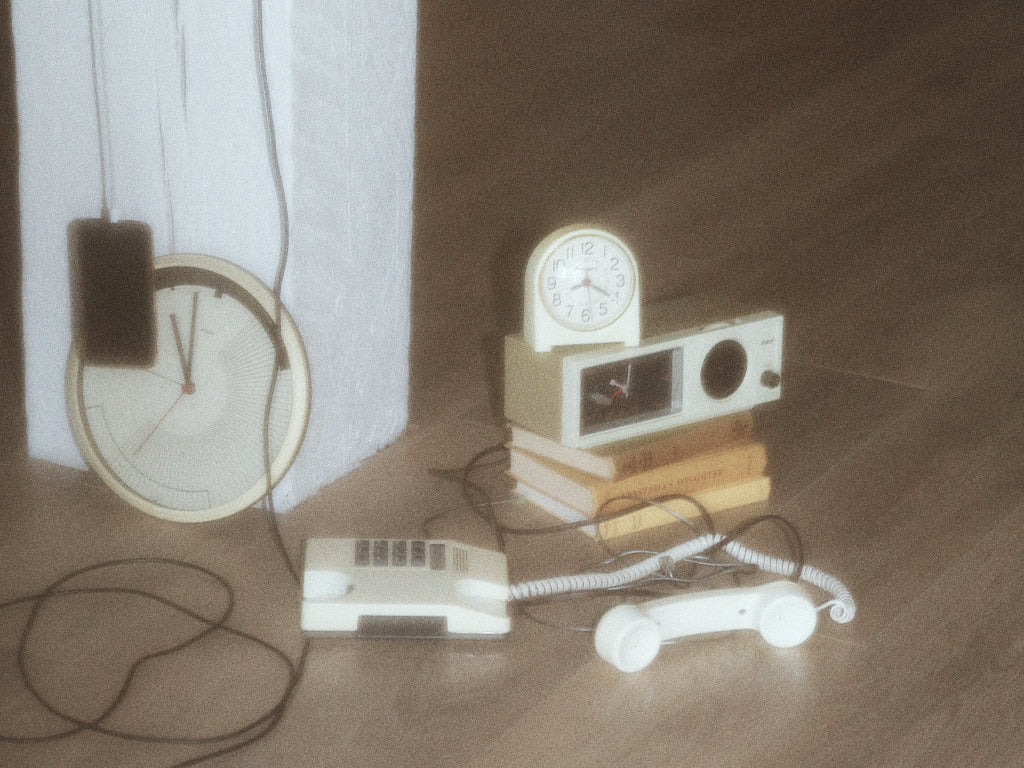A lesson in maintaining peace of mind around the not-so-peaceful with Therapist Melissa Ander
There’s something very un-chill about living in New York. As a Texpat—that is, I moved here from Austin, Texas—I find myself in a constant state of over-stimulation; lusting for open skies and flat terrain; wondering, even after almost 5 years of calling this place home, if anyone has ever actually mastered the art of idleness in a city that demands one to be always on. If “peace of mind” were available for purchase here, I’m sure it would be in very high demand.
Where I’ve historically been prone to avoiding the many sources of stress that NYC provides—working from home when I want to safeguard my sanity and skip the commute, or cancelling plans to confront a colleague about something uncomfortable, therapist, Melissa Ander has a different remedy in mind. This remedy looks something like acknowledgement, followed closely by validation. Why? Because when we admit to the reality of something, we instantly accept its legitimacy, and are thus no longer thrashing about in our attempts to tread water whilst pretending the water does not exist. Put simply: recognize your feelings, allow yourself to actually feel them, then go from there.
“We are existentially alone, but in a constant interpersonal relational process; meaning that our nervous systems are in a perpetual state of reaction and response,”
Ander explains, “Often we are not aware on a conscious level of why we're feeling what we're feeling. And so in order to be able to maintain calm and to be optimal in our functioning, we have to develop a skill of insight and awareness.”
Having insight into why we feel what we feel means committing to the process of tuning in, especially in our workplace environment where we spend upwards of 40 hours per week. When we learn and adopt the skills to pay attention to our “felt” sense, Ander says, we develop the ability to tolerate feeling, instead of burying it.
“Self-inquiry calms the nervous system: when you name a feeling state, it has the effect of moving you from your limbic brain where there are reactivity and response and anxiety and stress and fear into your prefrontal cortex where there are logic and reason. When people feel understood, there’s less anxiety.”
Consider the stress of a tense meeting or the awkward friction when two people in leadership positions fundamentally disagree. Instantly, I plan my exit strategy; what’s the most low key response I can craft? How can I avoid participating in order to avoid conflict? If all else fails, will anyone notice if I make a mad dash for the exit? Ok, that’s not so serious, but you get the picture—this is about acknowledging how these situations (and, sometimes, individual people) make us feel, and then, consequently, dealing with the reality at hand instead of running away from it.
“Don’t avoid discomfort—consider that anxiety or stress as a valuable source of information that'll motivate us to seek out what we need to do to feel better. And then, act on those needs: when you know what's going on and what's driving that sense of discomfort and you stand within that environment, you can name it and the nervous system settles.”
I’m no expert in this tactic but I’m intrigued by how it can improve my state of mind, especially at work; though I can’t remove myself from the chaos of New York City (or my job), I might be able to remove my inclination to avoid it—and instead, face it head on (like, I’m assuming, a true New Yorker would).
Image by Emma Banks
This post is tagged as:
You may also like...
The Latest
People & Places
How Ara Katz is Redefining “Self-Care” as Rooted in Science with Seed
The co-founder, mother, and self-proclaimed serial entrepreneur unpacks her philosophy on what it means to be well. Ara Katz hates the word “success”. Not because of its listed definition in a di...

Do Good Werk
9 Passive-Aggressive Email Phrases That Are Basically Evil
A Rosetta Stone for every time you want to :’).

Woo Woo
Get to Know Your Astrological Birth Chart
How to find meaning in the stars — and what it means for you.

People & Places
The 5 Best Places In New York To Meet Your Next Investor
Where to rub shoulders with the city's movers and shakers.

Do Good Werk
10 Unhealthy Thoughts You Convince Yourself Are True as a Freelancer
If you work alone, you might be particularly susceptible to distorted thoughts that hurt your mental health.

People & Places
Creating a Conference-Meets-Summer-Camp for Adult Creatives
An interview with Likeminds founders Rachael Yaeger and Zach Pollakoff This past September, I sat in front of an obituary I wrote for myself after a session with a death doula. No, I didn’t know w...

People & Places
When Something Golde Stays: An Interview with Golde’s Co-CEOs
“For us it was never a question,” says Issey Kobori, speaking of the decision to build a business with his partner Trinity Mouzon Wofford. At just shy of 27, Kobori and Wofford have secured a host ...

Better Yourself
Are They Toxic? Or Are They Human?
There’s a difference between putting up boundaries and putting up walls, and the latter is what breaks relationships.

Do Good Werk
How To Combat Seasonal Affective Disorder At Work
Here’s what to do if seasonal affective disorder starts to take a toll at the office.

People & Places
Reclaiming Womxn's Wellness Spaces from a White-Dominated World
How The Villij built a collective that their community can connect to.









